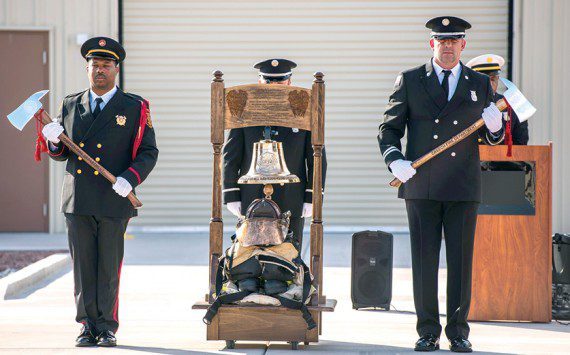NELLIS AIR FORCE BASE, Nev. — September was National Suicide Prevention Awareness Month. The month helped promote resources and awareness around the issues of suicide prevention, how you can help others and how to talk about suicide without increasing the risk of harm.
“Suicide is a growing concern not only for the Air Force and our sister services, but for the country as a whole,” said Tech. Sgt. Ashley Harris, 99th Medical Operations Squadron Mental Health Resiliency Installation Suicide Prevention program manager. “National Suicide Prevention Month is vital because it highlights a sensitive topic that is difficult to discuss for most individuals who have little or no experience in the area. It provides a platform for informing and educating on warning signs and resources available for individuals who may be afraid to reach out in any other way.”
According to the National Alliance on Mental Health, suicidal thoughts can affect anyone regardless of age, gender or background. Suicide is the third leading cause of death among young people, and is often the result of mental health conditions that affect people when they are most vulnerable.
“We all need to be good wingmen and pay attention to our friends, family members and co-workers,” said Harris. “Statistically speaking, Air Force males in the grades of Senior Airman to Staff Sgt. and between the ages of 25 to 29 have a higher prevalence of completing suicide. While suicides can and does affect all Air Force Specialty Codes, the Air Force Community Action and Intervention Board has identified members of Intelligence, Security Forces, and Manned Aircraft Maintenance career fields as having a higher risk level due to mission requirements and operational stressors.”
According to Harris, some of the more common risk factors for suicide are significant relationship or financial troubles, untreated mental health illnesses, occupational problems, legal concerns, substance abuse, or a history previous suicide attempts. (This list is not all inclusive and any significant abnormal life stressor can cause an individual to consider suicide as an option).
Some warning signs or behaviors displayed by individuals considering suicide include: talking about wanting to die or killing themselves, acquiring lethal means or purchasing a weapon to perform the act, an increase in the use of alcohol or drugs or withdrawing themselves from others, just to name a few.
“The most important thing to remember when looking for warning signs in those we care about and encounter every day is if something seems off, it probably is,” said Harris. “It never hurts to check on each other and show genuine concern for another’s wellbeing.”
If one is displaying these signs or behaviors there are organizations out there on base for those individuals to reach out to for help.
“The base and local community have many helping services,” said Harris. “If someone is thinking about suicide we recommend reporting immediately to the nearest Emergency Department or installation Mental Health Clinic for further assistance. They can also reach out to their unit First Sergeant or supervisor for assistance.”
Suicides can be prevented and awareness is key to stopping this issue.
“Suicide Prevention should not be limited to one month out of the year, but instead practiced on a daily basis by all Airmen,” said Harris. “The unique strain and hardships that our Air Force family members experience does not have to be shouldered alone. Regardless of rank or position, it is our responsibility to foster a supportive environment and be an exceptional wingman. By taking care of and checking on each other, it guarantees our ability to maintain the greatest Air Force asset, our Airmen.”
For additional information on Suicide Prevention or Mental Health resources, contact the Nellis AFB Mental Health Resiliency team at 702-653-3880.











